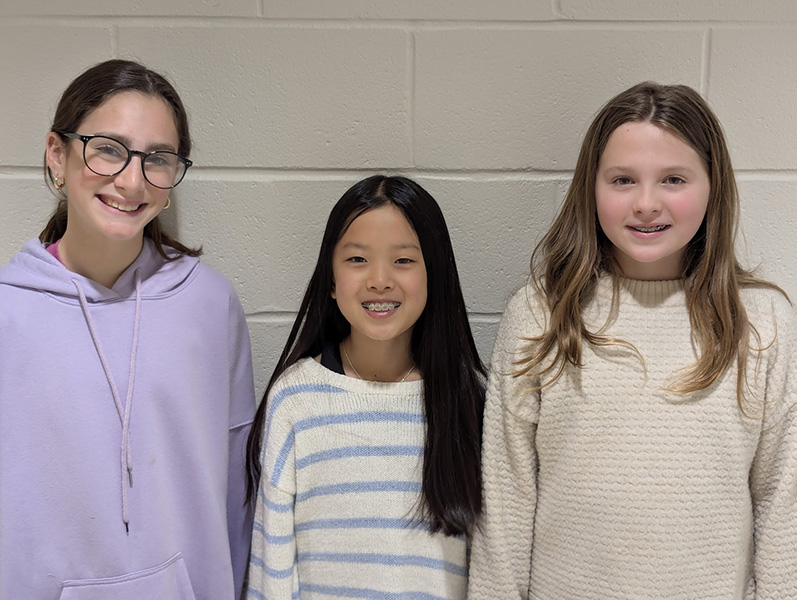
Olivia Whee, Chloe Robbin, and Charlotte Naughton, 6th graders at Bedford Middle School in Westport, are catching eyes on the global stage after winning 2nd prize in the World of 8 Billion International Student Video Contest—a competition that drew thousands of entries from students in 67 countries around the world as well as from 45 U.S. states and the District of Columbia.
Their 60-second video The Scoop on Poop, tackles the challenges to rainforest ecosystems by proposing the increased use of elephant feces to make recycled paper, which would ease the demand on trees, including those in the rainforests, for the creation of paper and other consumer products.
The three friends, all animal and nature-lovers, “wanted to help with some of the world’s biggest problems,” says Charlotte. When the video contest was assigned in social studies class, Chloe thought about her grandparents’ trip to Thailand where they bought a notebook made from the fibers of elephant dung. She wanted to learn more. According to Olivia, the hardest part was condensing their tremendous amount of research into a single minute. All three students want to keep making videos in the future.
This year’s contest challenged students to explore how population growth intersects with three critical global issues:
- Child Wellbeing: The physical, mental, and emotional state of children greatly depends on their access to resources, the safety of their communities, and the reliability of the services around them.
- Rainforest Ecosystems: Climate change, mining, agriculture, and deforestation threaten the biodiversity and health of rainforests, which not only provide habitat for wildlife, but critical resources that humans rely on and benefit from.
- Sanitation: People have always struggled for proper sanitation – access to clean water for drinking and cleaning, as well as a system for safely handling human waste. It is crucial for public health and has been recognized as a human right.
“The thousands of students who took part in this year’s contest showed depth of thought, creativity, and a sense of collective responsibility for our environment and the wellbeing of people in their communities and around the globe,” said John Seager, President of Population Connection.
More than 4,600 students participated in the annual contest, organized by Population Connection’s Population Education program, and judged by a panel of educators, filmmakers, and experts in sustainability. With compelling messages and creative approaches, winners proposed innovative solutions such as solar-powered composting toilets, farm-to-family partnerships, agroforestry, and reimagining public transit, all in one powerful minute.
Prizes for high schoolers are $1,200 for first place, $600 for second, and $300 for honorable mention for high schoolers. Middle school first- and second-place winners received $600 and $300, respectively.